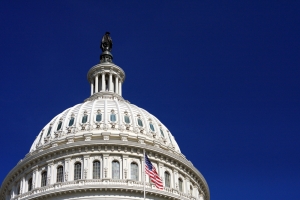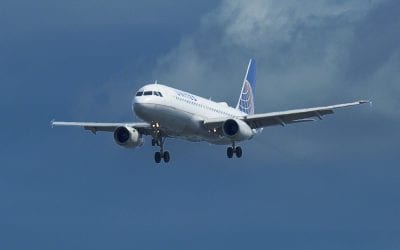During the Obama years, consumers won some rule-making battles and lost some.
 During the last days of the Obama administration, there was a rush of executive orders and rules being published. However, new travel consumer rules were not part of that rush. Somehow travel consumers were left out of the melee. That turned out to be both bad and, perhaps, good.
During the last days of the Obama administration, there was a rush of executive orders and rules being published. However, new travel consumer rules were not part of that rush. Somehow travel consumers were left out of the melee. That turned out to be both bad and, perhaps, good.
The rush for new rules and orders caused the incoming Republican Congress to look at ways that they could wipe out the new orders and rules in one fell swoop. It hasn’t happened yet, but many of the orders will be rescinded. So, maybe, the lack of movement for consumers regarding travel protections might make no difference.
The Federal Register was overwhelmed Thursday with nearly 1,500 pages worth of rules from federal agencies. Miriam Kleiman, a spokeswoman for the Federal Register, described it as “one of the largest ever” editions of the government’s rule book.
“It certainly is a busy time for the Federal Register,” Kleiman told The Hill.
“There is a huge increase in the volume [of rules we receive] toward the end of an administration,” she added.
However, after hearing eight years of concerns and working with the administration for Obama’s first term with much success, having nothing happen for the last four years of the last term is disconcerting. Where did the government and consumer advocates succeed during the last administration and what big issues are being carried over into the Trump administration?
Travel Consumer Rule Successes
1. Tarmac delay rules. These were created to ensure that passengers would not be trapped on planes awaiting take-off for more than three hours for domestic flights and four hours for international flights. This is a protection, but passengers do not receive any compensation.
2. The 24-hour rule. Travelers United worked with the Department of Transportation (DOT) from conception to the final rule for this consumer protection. All passengers who are booking flights more than one week from departure now have 24 hours to change or cancel their airline tickets.
3. The full-fare advertising rule. Before our work with DOT through the rulemaking process, airlines were allowed to publish airfares that did not include mandatory taxes and fees. Moreover, they published one-way airfares based on one-half of a round-trip airfare. This meant that consumers were being advertised prices that were impossible to purchase. Today’s full-fare advertising rule means that passengers can fly between destinations in advertisements for the airfare noted in the advertisement. Of course, extra optional ancillary fees for baggage, food, seat reservations, WiFi, and so on, are still extra. However, all mandatory taxes and fees are included in the advertised price.
4. Increase in lost/damaged/delayed baggage compensation. This compensation level was raised to a realistic $3,500 per passenger for checked bags that were lost, damaged or delayed. This amount rises with the increase in the consumer price index.
5. Increase in denied boarding compensation. Involuntary denied boarding compensation is now $1,350 in cash. Airlines are still allowed to bargain with travelers who may want to take airline scrip and less money. However, for any passenger forced to miss their flight because of overbooking, the compensation is $1,350.
6. Reporting requirements and responsibility for damage to mobility devices. Strict rules were established for the handling of mobility devices such as motorized scooters, wheelchairs and walkers.
7. Approval of Norwegian Air International transatlantic flights. Travelers United was the lead consumer group supporting new transatlantic routes that are adding competition for the three major airline alliances and creating lower airfare between the US and Europe.
Travel Consumer Rule Failures (or, unfinished protections).
1. Transparent airfare and ancillary fees rule. After eight years of hearings, comments, discussions with DOT, and meetings with congressional committees, consumers failed to have DOT require that airlines release all ancillary fee pricing to the public. That information is still closely held by the airlines and consumers cannot comparison shop for airfares together with ancillary fees across airlines. Here the efforts will continue in the new administration.
2. Hotel room rates that include resort fees. After working since 2012, Travelers United was extremely close to having the Federal Trade Commission (FTC) rule that all mandatory hotel fees must be included in the advertised room rate. This would bring hotels in line with airlines in terms of honest advertising. The FTC was poised to act, however, the process has been held over until this current administration. The FTC did complete and publish an Economic Analysis of Hotel Resort Fees. This analysis quantifies consumer harm from the current false advertising practices. Travelers United expects that the FTC will act in the coming year. We have also asked the National Association of Attorneys General (NAAG) to examine the process.
3. Cruise Line consumer bill of rights. After numerous hearings, a long bill writing session with House and Senate staff, and negotiations with Coast Guard and Cruise Line officials, consumers are walking away empty handed. This cruise line effort will be another battle for the future.
These changes do not come easily and they do not come without consumer advocates working together with DOT and Congress promoting consumer rights. Already, work is under way on legislation and rulemakings that will make travel better for passengers of airlines, cruise lines, trains, and local transportation. Please consider joining Travelers United by subscribing to our newsletter. Better yet, join as a paid member — your membership helps our organization do studies, work with Congress, hire interns, and file comments. That is the grease that makes the machinery of governance work.

Charlie Leocha is the President of Travelers United. He has been working in Washington, DC, for the past 14 years with Congress, the Department of Transportation, and industry stakeholders on travel issues. He was the first consumer representative to the Advisory Committee for Aviation Consumer Protections appointed by the Secretary of Transportation from 2012 through 2018.



